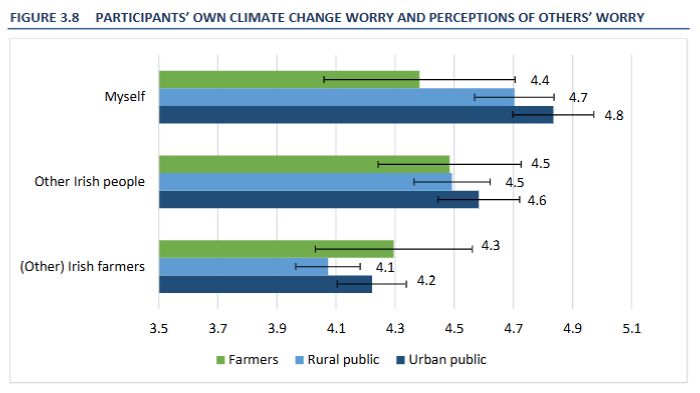
We find considerable scope for improving farmer awareness of these practices, some of which may be easy wins:
10/14

We find considerable scope for improving farmer awareness of these practices, some of which may be easy wins:
10/14
(There are some differences for specific policies, with farmers less supportive of reducing the national herd than the public (2.2 vs. 3.5-3.8), but little difference on most).
9/14

(There are some differences for specific policies, with farmers less supportive of reducing the national herd than the public (2.2 vs. 3.5-3.8), but little difference on most).
9/14
8/14

8/14
The public also underestimate how many farmers struggle with negative perceptions of farming.
7/14

The public also underestimate how many farmers struggle with negative perceptions of farming.
7/14
(Note the distribution uptick at 1 though!)
6/14

(Note the distribution uptick at 1 though!)
6/14
But it's also worth noting that majorities of all groups are poor on dietary emissions.
5/14

But it's also worth noting that majorities of all groups are poor on dietary emissions.
5/14
Farmers do slightly worse than the public (but again, if anything, the rural-urban divide favours rural).
4/14

Farmers do slightly worse than the public (but again, if anything, the rural-urban divide favours rural).
4/14
Concerningly, 1 in 3 farmers and the same proportion of the public don't identify agriculture as one of the big emitters
3/14

Concerningly, 1 in 3 farmers and the same proportion of the public don't identify agriculture as one of the big emitters
3/14


Binary label: +10% most sustainable clothing
Eco-score: +20%
Eco-score participants were also twice as likely to exclusively buy the most sustainable options (the bulge at the top of the yellow plot). 3/6

Binary label: +10% most sustainable clothing
Eco-score: +20%
Eco-score participants were also twice as likely to exclusively buy the most sustainable options (the bulge at the top of the yellow plot). 3/6
Participants were randomised to see:
🟩 A binary label applied to the most sustainable products - based on the EU eco-label
🌈 A graded “eco-score” (for all products)
❌ Or no label (control). 2/6

Participants were randomised to see:
🟩 A binary label applied to the most sustainable products - based on the EU eco-label
🌈 A graded “eco-score” (for all products)
❌ Or no label (control). 2/6
Our recent working paper tests whether eco-labels can shift consumers away from fast fashion. 🧵 1/6

Our recent working paper tests whether eco-labels can shift consumers away from fast fashion. 🧵 1/6

